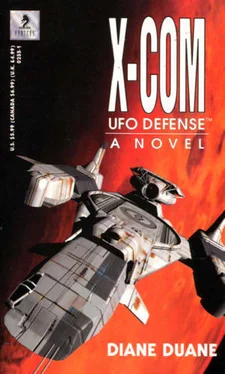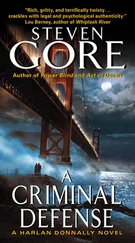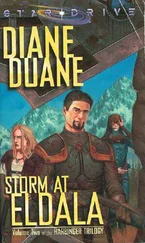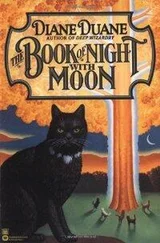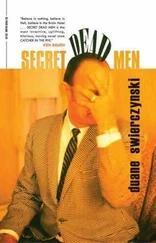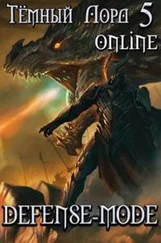Jonelle and Ari were in civvies, which at the moment meant the kind of cold-weather gear that moderately well-off tourists might wear: boots and one-piece snowsuits in muted outdoor colors, mottlings of brown and gold and several greens. Jim Trenchard’s tastes varied; he was in a fashionable but god-awful one-piecer in a shade of violent electric puce that ensured he would never be lost in an avalanche. The thing glowed like neon, even in the shade, and against the blue-shadowed snow, he positively vibrated.
Jonelle and Ari were actively embarrassed to be with him, but the fourth of their party just laughed and told them not to worry. “That’s what everyone’s wearing this year,” said their guide, Konni. “He’ll blend in perfectly.”
Jonelle wondered, but said nothing about it for the moment, since their guide came highly recommended.
Konrad Egli was a liaison between X-COM and the Swiss intelligence agency, a group so secret it genuinely did not have a name, the way MI5 had tried not to, and failed. But then, Jonelle thought, in the country that invented the numbered bank account, why should I be surprised at this? The agency, in turn, had ties with the army, though again the nature of these ties was never precisely described to Jonelle, and she was sure she didn’t need to know. “Just so long,” she had said to Konni when they met at the airport earlier in the day, “as someone at the army knows that someone is likely to be, uh, renting one or another of their facilities…so that they don’t start shooting at us one day when we come out to take care of business.”
“Oh, no,” Konni said, “you needn’t worry about that. It’s all taken care of.” That was the way about half of Konni’s sentences ended. His general bearing was less like that of a military attaché than that of an efficient restaurant maitre d’. He looked like one, too: a tall, blocky, middle-aged man with iron-colored hair and gray eyes, like a walking block of granite. His voice was gravelly, too, except when he laughed. Then you suspected it might start avalanches.
Now Jonelle looked over at Jim’s purple suit and said, “Is that taken care of, too? How do we explain his presence up here? Or ours?”
“You’re fat-cat UN officials wasting public funds,” Konni said cheerfully, “renting expensive helicopters to go on a heli-skiing jaunt. The perfect cover, since any good Swiss would believe it instantly.”
“What if someone sees we didn’t do any skiing?” An said.
“You chickened out,” Konni said and laughed delightedly. “Even better. They’ll definitely believe that”
“Wonderful,” Jonelle said, but she had to smile a little. “Why exactly did you want us to see this spot?”
“Look around you,” Konni said. They did. Even from the strictly tourist point of view, it was a view worth seeing. Northward lay Andermatt town, a scatter of hotels and a lot of little brown and golden houses, held inside a triangle of roads. These led west down the Furkapass valley, east to the set of murderous switchback curves that climbed to the Oberalppass, and north to Göschenen and the northern end of the great Sankt Gotthard rail tunnel. Past them, above them, the lowlands of Switzerland dwindled away into hazy views of Germany. Directly westward rose the great triangular peak of the Furkahorn, ten thousand feet high, and over its shoulder, a crevasse-streaked hundred-lane highway of ice a mile wide: the Grosser Aletschglacier, oldest and biggest glacier in Europe. Beyond that, through the clear air, you could see straight to Geneva, and France beyond. South lay mountain after mountain, like waves in the sea, the Sankt Gotthard pass and the other lesser passes spilling downslope, like rivers, into a golden haze that held Italy beneath it. Then, to the east, the heights of the great north-south running mountain chains of Graubunden, behind which lay Liechtenstein and Austria, and more distant but amazingly still visible, the Czech Republic and the borders of Eastern Europe.
“What if someone sees we didn’t do any skiing?” Ari said.
“You chickened out,” Konni said and laughed delightedly. “Even better. They’ll definitely believe that.”
“Wonderful,” Jonelle said, but she had to smile a little. “Why exactly did you want us to see this spot?”
“Look around you,” Konni said. They did. Even from the strictly tourist point of view, it was a view worth seeing. Northward lay Andermatt town, a scatter of hotels and a lot of little brown and golden houses, held inside a triangle of roads. These led west down the Furkapass valley, east to the set of murderous switchback curves that climbed to the Oberalppass, and north to Göschenen and the northern end of the great Sankt Gotthard rail tunnel. Past them, above them, the lowlands of Switzerland dwindled away into hazy views of Germany. Directly westward rose the great triangular peak of the Furkahorn, ten thousand feet high, and over its shoulder, a crevasse-streaked hundred-lane highway of ice a mile wide: the Grosser Aletschglacier, oldest and biggest glacier in Europe. Beyond that, through the clear air, you could see straight to Geneva, and France beyond. South lay mountain after mountain, like waves in the sea, the Sankt Gotthard pass and the other lesser passes spilling downslope, like rivers, into a golden haze that held Italy beneath it. Then, to the east, the heights of the great north-south running mountain chains of Graubunden, behind which lay Liechtenstein and Austria, and more distant but amazingly still visible, the Czech Republic and the borders of Eastern Europe.
Jonelle nodded. “It’s certainly central,” she said matter-of-factly like someone trying to resist the wies of a good real estate agent.
“That’s not so much the point at the moment,” Konni said. “Tell me: can you see any signs of, shall we say, building activity in this area?”
Jonelle looked around, hard, for about five minutes, before venturing an answer. The others did the same, though she knew they were going to leave the answering to her. The trouble was that the Swiss were past masters at this kind of concealment. You could look straight at a cliff wall and not see the fiberglass fake stone that someone had built and painted to match the real rock—not until someone came along and lifted it away to reveal the iron door underneath.
“On first glance, no,” Jonelle said. “But you’ve got to assume that anyone who might be involved in espionage would have a lot more time to study the area than we’ve got today.”
“That’s true,” Konni said. “But I wanted you to look for yourself because when we investigate the site more closely, you’ll want to recognize your landmarks and remember what you didn’t see. All ready, then?”
Jonelle was ready enough. Wind or no wind, her feet were freezing. With the others, she climbed hurriedly back into the helicopter.
Ten minutes’ flight brought them down to the little helicopter landing site near the train station in Andermatt. “Now what?” Jonelle said.
“Now we take the train to Göschenen.”
“Is the Rhaetische Bahn giving you a commission on this?” Ari inquired. Jonelle gave him a look.
They all dutifully got on the one-car RhB train. It was a most peculiar little creature. The track was slanted at about a twenty-degree angle down from the platform where they boarded, and the train car itself was built at the same angle, with all the seats slightly one above the other, as though on steps or bleachers. After a few minutes of sitting and hissing quietly to itself, the train gave a strangled hoot and started down the slope.
The track twisted and doubled back on itself several times as it made its way down a steep stone face, then went over and through a gorge nearly two hundred feet deep, with a ferocious, green-white, melt-swollen river running through the bottom of it. Finally the track straightened out somewhat, and the train car pulled up and stopped, still slanted, at another platform.
Читать дальше
